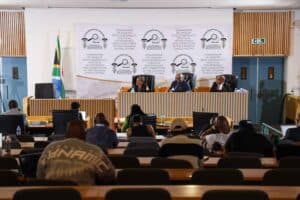Despite the president's promises of support in last year's State of the Nation address, municipalities around the country are rapidly collapsing.

Successive interventions to stabilise local government announced in previous State of the Nation addresses have seemingly achieved nothing, with the number of municipalities in financial distress doubling from 64 to 125 in the past decade.
Data analytics firm Municipal IQ highlighted this state of affairs in January, finding that service delivery protests against municipalities had doubled from 107 in 2009 to 218 in 2019.
President Cyril Ramaphosa announced in his last State of the Nation address (Sona) that government had begun stabilising 57 municipalities, with over 10,000 infrastructure projects being rolled out.
According to Organisation Undoing Tax Abuse (Outa), former president Jacob Zuma and Ramaphosa had promised to turn around local government, but the reality was that the opposite occurred.
Julius Kleynhans, operations executive, said municipalities continue to deteriorate at an increasingly rapid rate.
“Many are less fiscally prudent, more susceptible to tender corruption and hamstrung by party political disputes, resulting in reduced maintenance and failed service delivery.”
Kleynhans said an increasing number of municipalities were facing collapse. Some have been unable to pay salaries, and had their assets seized.
Makana local municipality was dissolved due to action brought by disgruntled civil society groups but instead of addressing the collapse of that municipality, the Eastern Cape government watches while the council fights their removal with public money.
“Neither the president, nor national, provincial or local government leaders have an understanding of the seriousness of the situation. After more than a decade of promises, we find ourselves in a worse position than ever,” Kleynhans said.
The number of municipalities disestablished in the same period is 26, reducing municipalities from 283 to 257.
Michael Holenstein, Outa’s manager for local government, said 56 of the 64 municipalities deemed distressed in 2009, have been classified as distressed on more than one occasion, with Maluti-a-Phofung in the Free State having reappeared seven times.
He said the Local Government Turnaround Strategy (LGTS) adopted in 2009, has had no effect. “Nearly every milestone was missed.”
Mlungisi Mtshali, Cogta spokesperson, said they were clawing back local government’s reputation.
“Corruption undermines government, but we cannot lose sight of what government puts in place. We connected millions of people to water and electricity in a very short space of time.”
For more news your way, download The Citizen’s app for iOS and Android.






